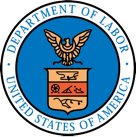In most cases, you can get your job back after treatment. Job security after rehab depends on several factors, including your history of addiction, how you left your job and your employer’s policies.
The most effective treatments for addiction are evidence-based, comprehensive and long lasting. Most experts agree that inpatient or residential rehab is the most effective treatment because it provides a safe environment for recovery and around-the-clock support.
However, going to rehab for addiction often means taking extensive time off from work. That’s difficult for most people, especially considering the cost of rehab and the role work-based insurance plays in paying for treatment.
Thus, it’s not surprising that fear of missing work is one of the most common reasons people suffering from addiction avoid treatment. Most people also fear the stigma associated with addiction and do not want their boss or co-workers to know about their history of substance use or compulsive behavior.
Your livelihood is important, so it’s crucial that you know the steps needed to increase the chances of keeping your job after rehab.
What to Do Before Rehab
If you’re contemplating rehab, you know addiction negatively affects your life. Whether you realize it or not, addiction probably hurts your work performance, too. During rehab, you’ll gain tools to improve your work performance, relationships and outlook.
People in recovery from addiction are more likely to succeed at work or find better jobs than those with untreated substance-use disorders. When you choose to seek treatment, you’re choosing to take the steps to live a happier life and to pursue a fulfilling career.
You’ll increase your chances of keeping your job after rehab if you are honest with your employer about the length of your leave. You don’t have to disclose private details, but you should reveal the severity of your health condition.
When possible, give your boss notice so he or she can ensure your duties are covered while you’re away. Your health and safety are top priority, though, so in severe cases of addiction, seek treatment as soon as possible.
- Be honest about how long you expect to be gone.
- Tell your employer about the severity of your condition.
- Give adequate updates about the status of projects you’re leaving.
- Arrange coverage of your responsibilities while you’re gone.
- Let your boss and co-workers know you plan to return to work.
You should also keep them apprised of your status throughout rehab. When possible, give your boss updates on your status or work with a case manager at a rehab facility to communicate with him or her.
If your job has an Employee Assistance Program, use it to find information on counseling services and nearby rehab facilities. You can talk with a human resources representative or an EAP counselor to determine how treatment will affect your employment. Your employer may be more supportive of treatment if you use the workplace resources.
Know Your Rights
Federal laws provide many protections for employees with mental health or substance abuse problems. However, several factors affect the rights you’re entitled to as an employee with a substance use disorder. Human resources professionals or EAP counselors can help you understand your rights.

The Americans with Disabilities Act
The goal of the ADA is to eliminate discrimination against individuals with disabilities, including people recovering from addiction. However, it allows employers to enforce drug- and alcohol-free work environments.
You are not protected by the ADA and may be unable to get your job back after rehab if you’re consuming illicit drugs, including prescription drugs, or your work performance or conduct is inadequate compared with workplace standards.
You are covered by the ADA if you are no longer consuming illicit drugs, are participating in a treatment or rehab program and are in recovery from a substance use disorder.

Family and Medical Leave Act
The FMLA allows employees to keep their jobs during treatment for a specified medical condition for 12 unpaid workweeks in a 12-month period. Individuals in recovery from alcohol addiction or alcohol use disorders may take leave for treatment, but the FMLA does not cover individuals with substance use disorders involving illicit drugs.
Return-to-Work Agreements
If your employer finds out you’ve violated a workplace drug or alcohol policy, he or she may require you to complete an addiction treatment program to keep your job. A Return-to-Work Agreement is a written document that details the conditions an employee must agree to and complete before returning to work. You should fully understand and complete all of the conditions of the RTWA to ensure you can keep your job after rehab.
Dedicate Yourself to Treatment
The best way to get your job back after rehab is to dedicate yourself to treatment and to prove you’re able to perform your job when you return.
Recovery starts when you acknowledge addiction exists and you need substance abuse treatment to recover.
- Learn about addiction and how it affects you.
- Decide to change your behavior to decrease the odds of relapse.
- Ask for help from friends, family and, in some cases, co-workers.
- Choose the treatment option that is best for you.
- Develop a plan for life after recovery.
You may be able to return to work during outpatient rehab, or you may want take your time transitioning before starting work. Consider staying in a sober living environment and avoiding high-risk environments to reduce your risk of relapse.
Tips for Returning to Work After Rehab
Wait until you’re ready to handle the challenges of a regular workday before returning to your job.
When you return from drug or alcohol treatment, your employer is required to make reasonable accommodations, according to the ADA. That might mean keeping personal information confidential or allowing you to adjust your hours in order to attend treatment, as long as it does not cause the employer undue hardship.
Employers cannot fire you for being in recovery from addiction, but they can let you go if your performance drops below an acceptable level or if your conduct disrupts the work environment. There are ways to avoid the work-related consequences of addiction and improve your chances of a successful recovery.
Manage Work-Related Stress
Stress is one of the biggest risk factors for relapse, and work environments are often stressful. However, there are strategies for relieving stress.
- Avoiding stressful situations when possible.
- Taking a deep breath or stepping outside to calm down during tense situations.
- Reducing interruptions, such as email or chat notifications.
- Using time management tools such as to-do lists and calendars.
- Working toward short-term goals.
- Exercising regularly.
- Eating a healthy diet.
Many people also worry about their reputation or whether people will judge them when they return to work. Talking to co-workers and peers can relieve feelings of anxiety.
Communicating with Co-Workers
You do not have to reveal personal information or your medical history to anyone. However, being honest about seeking treatment and working toward recovery can relieve internal stress. Often, co-workers can serve as a support system during recovery.
Some peers may not be supportive, but you shouldn’t worry about the thoughts and beliefs of others. If they become hostile or obstructive to your ability to work, inform your supervisor or human resources representative.
Avoid and Manage Relapse
Relapse is a common during recovery, but abusing illicit drugs or alcohol can violate workplace policies. Take steps to avoid relapse, such as avoiding high-risk situations, attending support group meetings and continuing to attend therapy after treatment.
Reach out to a friend, family member, sponsor or therapist for support if you begin to recognize the warning signs of relapse. If you do experience a setback, seek treatment as soon as possible.
In most situations, you can get your job back after rehab. Doing so often involves being honest with your employer, taking advantage of available resources and dedicating yourself to getting better.
Medical Disclaimer: DrugRehab.com aims to improve the quality of life for people struggling with a substance use or mental health disorder with fact-based content about the nature of behavioral health conditions, treatment options and their related outcomes. We publish material that is researched, cited, edited and reviewed by licensed medical professionals. The information we provide is not intended to be a substitute for professional medical advice, diagnosis or treatment. It should not be used in place of the advice of your physician or other qualified healthcare provider.
Author
Senior Content Writer,
DrugRehab.com
Chris Elkins worked as a journalist for three years and was published by multiple newspapers and online publications. Since 2015, he’s written about health-related topics, interviewed addiction experts and authored stories of recovery. Chris has a master’s degree in strategic communication and a graduate certificate in health communication.
View Sources
 Addiction
Addiction
 Treatment
Treatment
 Faith & Religion
Faith & Religion
 Active Recovery
Active Recovery
 Our Community
Our Community







